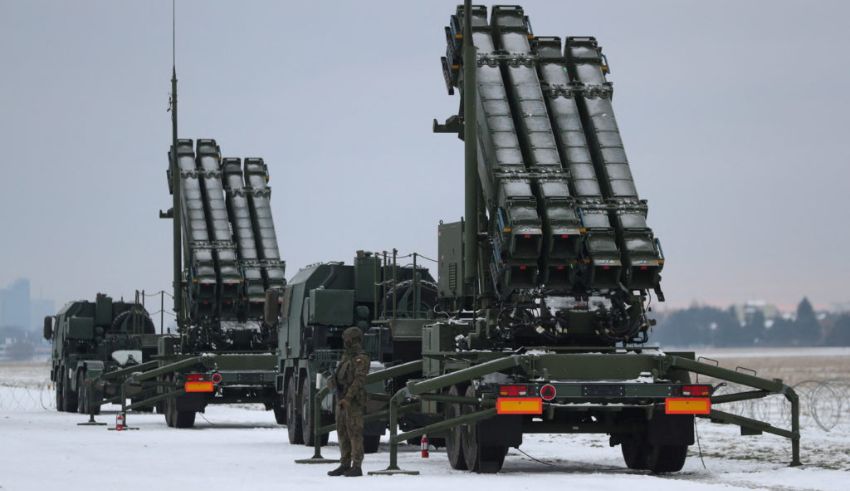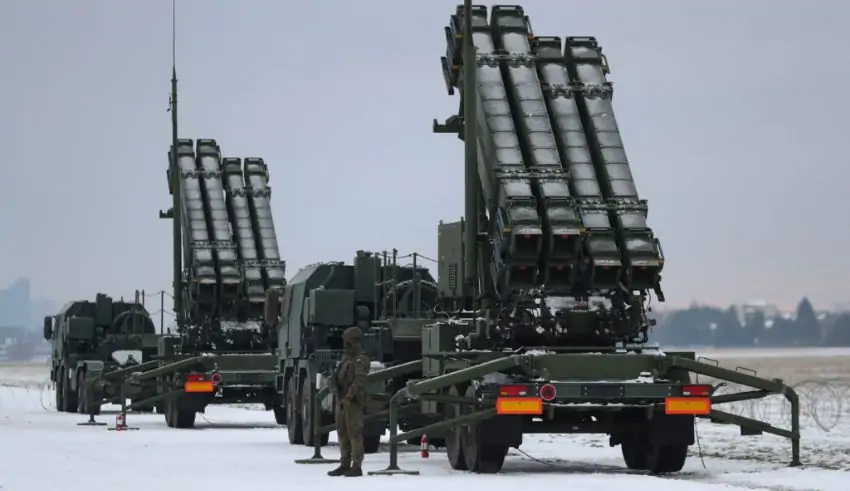

(C) PBS
Japan’s decision to send Patriot missiles to the US, which may indirectly aid Ukraine in its conflict with Russia, is a bold move that reflects its changing security posture and its willingness to support its allies.
Japan has long been constrained by its pacifist constitution and its self-imposed ban on arms exports, but it has recently amended its laws to allow for more flexibility and cooperation in defense matters. This is partly due to the rising threats from China and North Korea, which have prompted Japan to seek closer ties with the US and other partners in the Indo-Pacific region.
By agreeing to transfer Patriot missiles to the US, Japan is not only enhancing its own defense capabilities, but also contributing to the global security architecture. Patriot missiles are advanced air and missile defense systems that can intercept and destroy incoming threats such as ballistic missiles, cruise missiles, and drones.
They are among the most sophisticated weapons that the US has supplied to Ukraine, which is facing a renewed Russian aggression along its eastern border. The US has also pledged to provide Ukraine with tanks, anti-tank missiles, and other equipment to bolster its defenses and deter further Russian incursions.
Japan’s move is likely to be welcomed by Ukraine, which has been seeking more international support and solidarity in its struggle to preserve its sovereignty and territorial integrity. It is also likely to be appreciated by the US, which has been urging its allies to share more of the burden and responsibility for maintaining regional and global stability.
Japan’s move may also send a signal to Russia, which has been accused of violating international law and norms by annexing Crimea and supporting separatist forces in eastern Ukraine. Japan has its own territorial dispute with Russia over the Kuril Islands, which were seized by the Soviet Union at the end of World War II and are still claimed by Japan.
However, Japan’s move is not without risks and challenges. It may provoke a negative reaction from China, which has been wary of Japan’s increasing military role and presence in the region.
China has also been opposed to the US-led efforts to provide military assistance to Ukraine, which it sees as interfering in its internal affairs and escalating the tensions. Japan may also face domestic criticism and opposition from some segments of its society, which are still attached to the pacifist ideals and principles that have shaped Japan’s post-war identity and culture.
Japan may also have to deal with the technical and logistical issues involved in transferring and operating the Patriot missiles, which are complex and costly systems that require high levels of maintenance and training.
Japan’s decision to send Patriot missiles to the US, which may aid Ukraine, is a significant and strategic step that reflects its changing security posture and its willingness to support its allies. It is also a step that entails risks and challenges that Japan will have to manage and overcome.
Japan’s move may have implications not only for the situation in Ukraine, but also for the broader security dynamics and relations in the Indo-Pacific region and beyond.
30-year-old Lucy Guo has now made it into the record books because she has been the youngest self-made woman billionaire…
Big leaps into the internet technology future kicked off with the launch of the world’s first commercial network for selling…
The Singapore Exchange (SGX) plans to introduce Bitcoin perpetual futures trading capabilities which will become available during the second half…
Alicia Wong Lingling, 19 years old from Selangor’s Klang has officially entered history books as Malaysia’s first-ever female K-pop idol.…
Singaporean Netflix subscribers are paying more each month as the streaming giant introduces its latest price hike. From April 2025,…
K-pop being a big deal for SEVENTEEN, they're set forth in some serious celebration to mark a 10-year-long feat. This…
This website uses cookies.
Read More